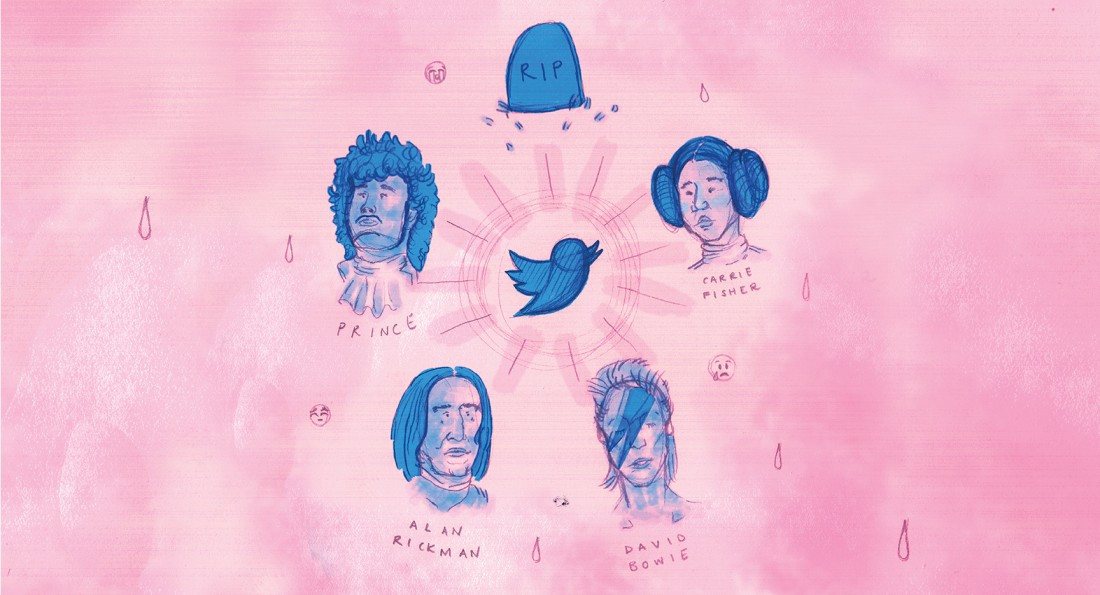Changing the tune of celebrity mourning
Treat social media as a public funeral, not a news ticker
The day Prince died, the CBC newsroom didn’t shut down. Instead, someone popped up from behind their computer to announce the news. Every few minutes, the odd reporter or producer would spring up and do the same.
A similar thing happened online, as it often does when a celebrity dies. First, the initial news breaks. Others pick up on the announcement, retweeting posts and sometimes adding their own commentaries or speculations.
It’s a pattern we saw unfold when 2016 claimed David Bowie, Harper Lee, Muhammad Ali, Leonard Cohen and Alan Rickman, to name only a few. Each time a celebrity died, people took to social media in force, prompting The Guardian to dub Death “the year’s biggest breakout star,” saying that when people look back on 2016, they’ll remember death. One researcher predicts 2017 will be just as fatal.
But what if, this year, instead of flooding the internet with platitudes, people actually said something meaningful about the celebrities who die? Tweeting a photo of your entire family wearing Gordie Howe jerseys or a story about watching Willie Wonka and the Chocolate Factory tells more about Mr. Hockey and Gene Wilder than a simple “RIP.” It shows personal connections and proves these individuals impacted real people.
When George Michael died, some people used #RIPGeorgeMichael to say they were “heartbroken” or to offer prayers for his family and friends. Others, however, used it as an opportunity to reveal stories about his anonymous generosity and his profound impact on LGBTQ+ communities.
The Chicago Tribune calls this approach to social media mourning the “collective public eulogy.” Sharing memories and even favourite songs can open up doors to people
who may have never heard of or cared about Merle Haggard or Phife Dawg.
“When the public inundates social media with praise and goodbyes for an influential public figure, it provides a giant hint that this person was important,” the Tribune editors write.
“It’s a belated introduction to a new audience. If your Facebook feed lights up over a death, that’s an unexpected opportunity to explore an author or musician or historical figure you didn’t know. Consider taking advantage of the invitation.”
Next time a favourite celebrity dies, also consider extending an invitation to others. A public post mourning their loss is an opportunity to introduce friends, family and even complete strangers to albums, activism and ideas.
These stories often come out eventually, but usually only after people parrot the news that someone died. Someone who only tweets “RIP Alan Thicke” and a crying emoji doesn’t add to the memorial conversation the same way sharing a news story about how he laughed off losing five teeth while practising for a celebrity hockey fundraiser might.
Sure, it might be tough to condense why Carrie Fisher’s openness about mental illness or Prince’s defiance of gender norms matters in only 140 characters – but why not try? Sharing these stories just might give these stars one last chance to inspire someone.
Danielle Doiron will always remember Carrie Fisher as an amazing writer and feminist badass in a film franchise full of men.
Published in Volume 71, Number 17 of The Uniter (January 26, 2017)







